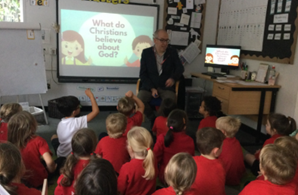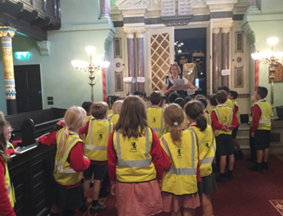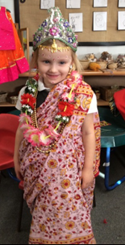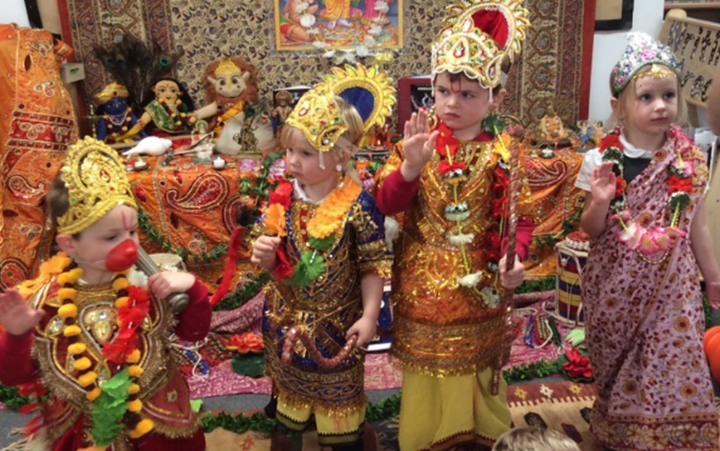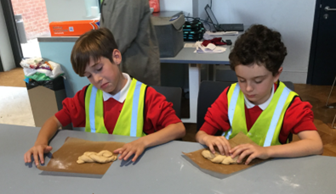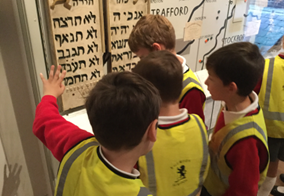Intent
At Egerton, our RE curriculum, guided by the Cheshire East Religions and Worldviews Syllabus, aims to inspire curiosity, reflection, and understanding of a wide range of religious beliefs and non-religious worldviews. Pupils explore local, national, and global perspectives, considering fundamental questions about life, morality, and meaning.
As a non-faith school, we do not seek to promote any particular belief. Instead, we aim to develop pupils’ knowledge of Christianity, Islam, Hinduism, Sikhism, Judaism, Buddhism, and Humanism, and their ability to think critically and respectfully about diverse perspectives. Our intent is to help pupils understand how beliefs influence identity, values, and culture, fostering respect, tolerance, and the skills to engage thoughtfully with the wider world.
From EYFS, children begin their journey by exploring similarities and differences between people, families, and communities. They learn about special stories, celebrations, and festivals, laying the foundation for curiosity, empathy, and respect for diversity.
Implementation
RE is taught in a sequenced and progressive way from Reception to Year 6 with careful consideration of SEND pupils to ensure full access and participation. Our curriculum ensures that all pupils:
- Acquire knowledge: Learn about key beliefs, practices, symbols, and festivals of major religions and non-religious worldviews.
- Develop skills: Ask meaningful questions, interpret sacred texts, reflect on meanings, and make connections between beliefs and lived experiences.
- Apply understanding: Express their own ideas respectfully and explore moral and ethical issues in a thoughtful way.
EYFS:
- Explore differences and similarities in families, communities, and ways of life.
- Engage with stories, celebrations, and festivals from Christianity, Hinduism, Islam, and other traditions.
- Begin to develop vocabulary related to beliefs and practices (e.g. Diwali, Christmas, Ramadan, Eid).
- Reflect on their own experiences and those of others in a respectful and curious way.
KS1: Recall facts, describe festivals, retell stories, and start comparing beliefs across religions.
LKS2: Explore meanings behind beliefs, practices, and symbols; make thoughtful comparisons across religions and worldviews.
UKS2: Analyse and reflect critically on different worldviews, articulate personal insights, and apply understanding to wider ethical and societal contexts.
SEND Provision:
- Lessons are differentiated to meet the needs of all learners, including scaffolding, visual aids, simplified texts, and additional adult support where required.
- Pupils with SEND are supported to access learning, demonstrate understanding, and participate meaningfully in discussions, activities, and assessments.
Learning is enriched through:
- Practical experiences: Role-play, artefact handling, visits to places of worship, workshops, and interactive sessions.
- Engagement with communities: Assemblies and visitors from local faith groups, including Knutsford churches and other religious representatives.
- Progressive assessment: Skills and knowledge are monitored through a range of formative and summative methods, including quizzes, posters, storyboards, diary entries, creative projects, and voice-recorded reflections.
Skills progression ensures that learning deepens systematically:
- EYFS & KS1: Recall key facts, describe festivals, and retell stories.
- LKS2: Explore meanings behind beliefs, practices, and symbols, making comparisons across religions.
- UKS2: Analyse and reflect critically on different worldviews, articulate personal insights, and apply understanding to wider ethical and societal contexts.
Impact
By the end of primary school, Egerton pupils:
- Demonstrate knowledge and understanding: Can explain beliefs, practices, symbols, and sacred texts across religions and worldviews.
- Think critically and reflectively: Make connections between beliefs, their own lives, and wider society.
- Show respect and empathy: Engage thoughtfully with others’ perspectives and demonstrate understanding of diversity and inclusion.
- Apply learning to real life: Appreciate shared values such as kindness, fairness, and community, and understand how religion and worldviews influence culture and identity.
At Egerton, we follow the Cheshire East Religions and Worldviews Syllabus, which guides students in exploring and understanding a variety of religious beliefs and worldviews from local, national, and global perspectives. Through this curriculum, children engage with fundamental life questions, explore a wide range of viewpoints, and develop respect for diverse beliefs. They are encouraged to reflect on the wisdom found in different religious and philosophical traditions, form their own insights, and express their views respectfully.
Religious and personal beliefs play a key role in shaping each individual’s identity. As a non-faith school, we aim to explain the beliefs behind various religions as outlined in the Cheshire East scheme of work. Our goal is not to persuade children to follow any particular religion but to help them understand the beliefs of others, empowering them to make their own informed decisions as they grow older. This approach fosters a greater awareness and acceptance of diverse lifestyles, choices, and beliefs, giving students a deeper understanding of how many of the festivals celebrated in our multicultural society have evolved.
From Reception to Year 6, all children learn about Christianity, which may be explored through assemblies led by members of the Knutsford churches, interactive sessions like Open the Book, and class lessons. Children also explore other religions, such as Islam, Sikhism, and Buddhism, providing them with a broader understanding of global belief systems. The religions and worldviews explored may vary depending on the interests of the cohort, and children may also learn about other faiths as opportunities arise.
Lessons are enriched through role-play, visits and hands-on experiences with religious artefacts, allowing children to connect with the subject in a meaningful and engaging way.
Reading Documents
Reception (Early Years)
The children in Early Years are taught to identify some similarities and differences between religions and cultural communities in this country. Therefore we focus on:
- Christianity: Easter and Christmas and the Christian belief about God.
- The Hindu festival of Diwali.
- The Chinese New Year Festival
- The Muslim festival of Ramadan and Eid-al Fitr
Year 1
- Christianity: What do Christians believe about God?
- Islam: What is Islam?
- Judaism: What does it mean to be a member of the Jewish community?
Year 2
- Christianity: What is the place of the Church in Christianity?
- Hinduism: What does it mean to be a Hindu?
- Buddhism: What is Buddhism?
Year 3
- Humanism: What is Humanism, and what do Humanists believe?
- Christianity: What is the significance of Easter within Christianity?
- Judaism: Why are festivals, celebrations, and High Holy Days so important within Judaism?
- Sikhism: What does Sikhism teach us about selfless service?
Year 4
- Buddhism: What does it mean to follow the Buddha?
- Islam: What do Muslims believe?
- Hinduism: What do sacred texts within Hinduism say about God?
Year 5
- Buddhism: What does Buddhism teach us about human experience?
- Hinduism: What place do festivals, worship, and celebrations have within Hinduism?
- Islam: What does it mean to be a Muslim?
Year 6
- Humanism: What can we learn from Humanism?
- Christianity: In what ways do Christians in different denominations worship?
- Judaism: Why is the Torah important within Judaism?
- Sikhism: What happens in Gurdwara?
By studying Religions and Worldviews, students at Egerton develop a thoughtful, informed, and respectful understanding of the diverse belief systems that shape the world around them. This knowledge helps them grow into compassionate individuals who are open-minded, accepting, and able to engage with the rich cultural diversity of our global community.
